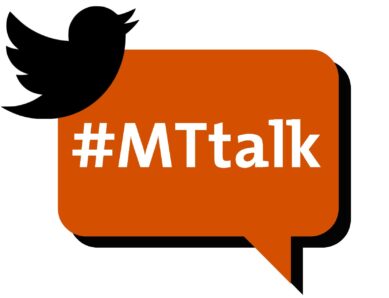Recently, I wrote about a time early in my career when I was perfectionistic, impatient and difficult to work with. I also mentioned that I was fortunate enough to end up with a boss who spotted my potential and took the time to coach me. Today I’d like to tell you what he did and how he worked with me.
Opening a Closed Mind
From his years of experience, my boss knew that his first challenge was to open a closed mind.
As much as he may have felt that he wanted to jump in and fix things, he knew that kind of approach wouldn’t yield productive results. He waited for the right time and opportunity and started the coaching process using a soft entry.
Although my boss disagreed with the way I went about doing things sometimes, he never spoke to me in an accusatory tone. He would point out behavior that he wanted me to change and explain what the benefits would be. We then worked out a plan of action and set goals for the next few weeks. The result was that I never felt he imposed his ideas on me.
If I needed help, I could ask my boss. If I faced a situation that I didn’t know how to handle, I would run a few ideas by him. We didn’t always have formal meetings either. Our encounters were often informal, such as having a quick chat on the stairs.
My boss knew he wasn’t wasting his time. Apart from having certain skills, I also had the will to become better at what I was doing.
Even though my boss had a lot of empathy and understood that the process wasn’t easy, he was firm. He cared about my success and about helping me to reach my potential. He accepted me, yet pushed me to grow. By becoming vulnerable and telling me about his own process of growth, he gave me hope.
The relationship is best described by what @Adaolasunmade said in last week’s “Coaching Skills for Managers” #MTtalk Twitter chat: a good coach is a partner in success.
Coaching Skills for Managers
One of our regular participants, Dr Pramod Solanki (@PramodDrSolanki) suggested the topic of the last chat and also contributed some of the questions. Here are all the questions and some responses from participants.
Q1 What is “coaching” in the context of a managerial role?
@WonderPix: Committing to helping others succeed in their roles, surpassing goals and maybe even surprising themselves.
@E_Toohig: Coaching = creating future capacity in others.
@KLC2978: Helping staff find solutions/answers themselves offering praise, support & showing strong leadership skills & good behaviors.
Q2 What are the benefits when managers actively coach employees?
Many responses outlined the well-known benefits such as increasing engagement and performance, more motivated employees, and improved morale. The following responses highlighted other benefits of coaching:
@TalentExch_Biz: No lost ground. Timely coaching prevents rework and promotes transparency and communication yielding great results.
@SAPTAonline: When managers actively coach employees they can prevent wrong behavior from becoming habits.
@JKatzaman: Managers actively coaching show they care about the success of their people as well as the company.
Q3 Why might managers shy away from coaching?
@MicheleDD_MT: May be threatened by advancing the skills of their team. Don’t know how to coach & fear they won’t get it right.
@KrisGiere: Coaching is messy because it’s human and not one-size-fits-all. It also requires vulnerability, which many managers shy away from.
@TwisterKW: Don’t know how. Worried how it will be received. Aren’t bought into the benefits. “No time.”
Q4 What happens if coaching isn’t a part of workplace culture?
If coaching isn’t part of the workplace culture, knowledge and competence are reserved for a few people at the top – a situation that isn’t conducive to strong growth. The following responses highlighted more issues:
@SistadaHealer: Employee morale suffers, growth is non-existent and everyone is left to figuring things out on their own.
@ZoeLord1: People don’t explore the answer for themselves & learn from the process. Narrow hierarchal thinking as manager provides answers
@NicolaBlairHRP: An over reliance on their manager/colleagues. Stagnation. Possibly will struggle with change.
Q5 In your opinion, which skills make a great coach?
Participants listed empathy, good listening skills, humility, the ability to ask good coaching questions, having a sense of humor, and consistency as some necessary skills. Here are two more responses to think about:
@Yolande_MT: A great coach displays social and cultural sensitivity and intelligence.
@amypen64: One that supports you in good and bad times. Lets you do what needs to be done. Offers support.
Q6 What aspects of emotional intelligence can make or break a coaching session?
@imaginyst: An aspect of emotional intelligence that can break coaching is the inability to remove your own assumptions.
@BrainBlenderTec: Rigidity: things that don’t bend, break. Making a session: active involvement and strongly steering the process will inspire and instill confidence.
Q7 Are there areas a manager should avoid when coaching their employees? If yes, what are they?
During the coaching process, people can build strong relationships and the coach may be tempted to give all kinds of advice. Certain issues are off-limits though.
@LynnCareerCoach: Mental health issues should be avoided and referred to a mental health professional incl. depression, anxiety, substance abuse, partner relationship issues.
@GThakore: Keep away from setting comparison traps, discussing personal issues and giving unwanted advice.
Q8 If a manager is new to coaching, what can he/she do to feel more confident and be more effective?
@Midgie_MT: Simply be curious, ask lots of questions and make sure that there are concrete actions to take away from coaching chat.
@ZalkaB: Ask for guidance and support! Coaching is not something we’re born with, but practices and processes that we can learn.
Q9 The higher a manager is in an organization, the more important it is for her/him to coach her/his staff. Agree/ disagree?
@PramodDrSolanki: Agree. At higher levels, you must guide senior people. Best way to manage them is to help them find their own solutions.
@MikeBarzacchini: Agree. You have the opportunity to model coaching for more people and influence the culture in deeper, lasting ways.
Q10 How does coaching help to develop leaders?
@PG_pmp: It fills the gaps between being a manager and being a leader.
The last word goes to @PramodDrSolanki: As people find their own solutions, leadership capability is developed at every level.
Next time, on #MTtalk…
Why do you think people find it difficult to disagree with powerful people? Please cast your vote in our Twitter poll.
In our next #MTtalk, on Friday March 17, our topic is “Disagreeing With Powerful People.” We’ll talk about the reasons people find it difficult to disagree with powerful people, and also how they can go about doing it. Please join us at 1pm E.S.T./5pm G.M.T.
To participate in our chat about disagreeing with powerful people, type #MTtalk in the Twitter search function. Then, click on “All Tweets” and you’ll be able to follow the live chat feed. To join the conversation, simply include #MTtalk in your tweet and it will show up in the chat feed.
Resources
In the meantime, here are some resources about coaching skills for managers:
- How Good Are Your Coaching Skills?
- What is Coaching?
- The GROW Model
- Coaching with Feedback
- David Grove’s Clean Language
- Solution-Focused Coaching
- Gibb’s Reflective Cycle
- Building Rapport in Coaching
- The OSKAR Coaching Framework
- Coaching Through Change
- Emotional Intelligence in Leadership




